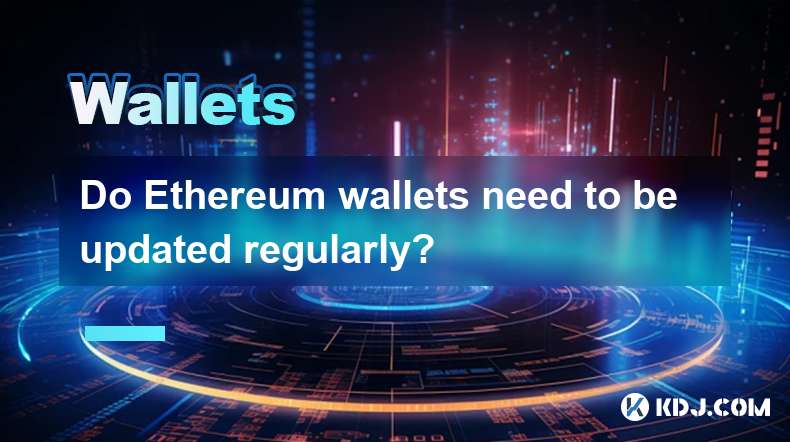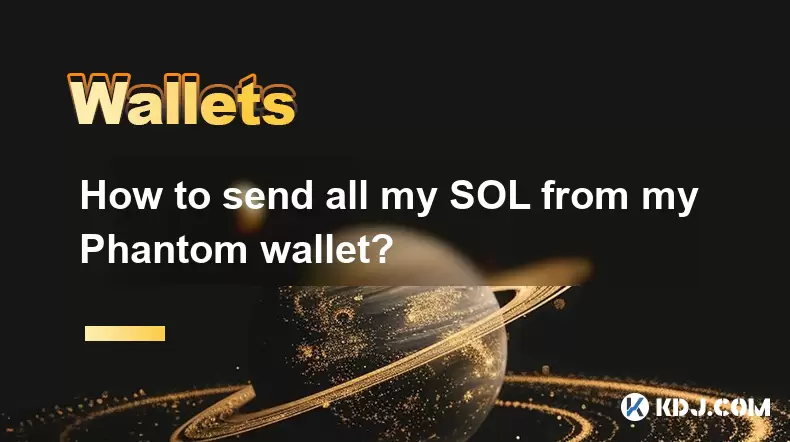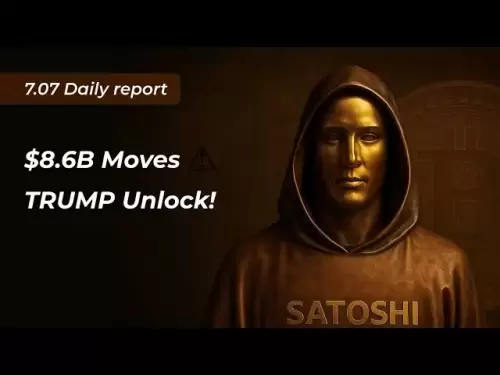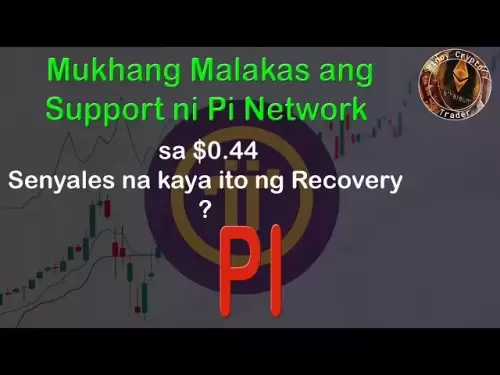-
 Bitcoin
Bitcoin $108,708.8110
0.60% -
 Ethereum
Ethereum $2,561.6057
1.91% -
 Tether USDt
Tether USDt $1.0001
-0.03% -
 XRP
XRP $2.2795
0.57% -
 BNB
BNB $662.2393
1.00% -
 Solana
Solana $153.1346
3.74% -
 USDC
USDC $1.0000
0.00% -
 TRON
TRON $0.2877
0.97% -
 Dogecoin
Dogecoin $0.1710
3.93% -
 Cardano
Cardano $0.5871
1.61% -
 Hyperliquid
Hyperliquid $39.6663
1.68% -
 Sui
Sui $2.9032
0.79% -
 Bitcoin Cash
Bitcoin Cash $496.1879
1.71% -
 Chainlink
Chainlink $13.5807
3.01% -
 UNUS SED LEO
UNUS SED LEO $9.0777
0.61% -
 Stellar
Stellar $0.2514
4.51% -
 Avalanche
Avalanche $18.1761
1.86% -
 Shiba Inu
Shiba Inu $0.0...01173
1.72% -
 Toncoin
Toncoin $2.8010
-4.23% -
 Hedera
Hedera $0.1594
3.21% -
 Litecoin
Litecoin $87.0257
-0.53% -
 Monero
Monero $319.1217
1.79% -
 Polkadot
Polkadot $3.3853
0.68% -
 Dai
Dai $0.9999
-0.01% -
 Ethena USDe
Ethena USDe $1.0003
0.02% -
 Bitget Token
Bitget Token $4.3420
-0.97% -
 Uniswap
Uniswap $7.3772
1.39% -
 Aave
Aave $286.6277
5.61% -
 Pepe
Pepe $0.0...09994
2.33% -
 Pi
Pi $0.4589
1.76%
Do Ethereum wallets need to be updated regularly?
Regular Ethereum wallet updates are crucial; outdated wallets are vulnerable to exploits and theft. Updates provide critical bug fixes, improved security, and enhanced functionality, protecting your ETH and ERC-20 tokens.
Mar 23, 2025 at 02:28 am

Do Ethereum Wallets Need to be Updated Regularly?
Yes, keeping your Ethereum wallet software updated is crucial for security and functionality. Outdated wallets are vulnerable to known exploits and security breaches. Updates often include critical bug fixes and improved security measures that protect your ETH and other ERC-20 tokens. Neglecting updates significantly increases your risk of losing access to your funds.
Why are regular updates necessary for Ethereum wallets?
Several reasons highlight the importance of regular updates. Firstly, developers constantly release patches addressing security vulnerabilities discovered in previous versions. These vulnerabilities could be exploited by malicious actors to gain unauthorized access to your wallet and steal your cryptocurrency. Secondly, updates frequently incorporate improved user interface features, enhancing usability and overall experience. Finally, updates often integrate support for new features and protocols within the Ethereum ecosystem.
What are the potential risks of not updating your Ethereum wallet?
Failing to update your Ethereum wallet exposes you to several significant risks. The most prominent is the risk of theft. Outdated software often contains known security flaws that hackers can exploit to gain control of your private keys and drain your funds. You may also experience compatibility issues with newer versions of the Ethereum network, rendering your wallet unusable or preventing you from interacting with certain decentralized applications (dApps).
How to update your Ethereum wallet?
The update process varies slightly depending on the specific wallet you're using. However, the general steps are usually straightforward:
- Check for updates: Most wallets will notify you of available updates through an in-app notification or a message on the wallet's website.
- Download the update: Download the latest version of the wallet software from the official website. Never download updates from unofficial sources, as these could be malicious.
- Install the update: Follow the on-screen instructions to install the updated version. This typically involves replacing the old software with the new one.
- Restart the wallet: Once the update is complete, restart your wallet to ensure all changes are implemented.
What types of Ethereum wallets require updates?
Essentially, all types of Ethereum wallets benefit from regular updates, regardless of whether they are software wallets, hardware wallets, or paper wallets. Software wallets (like MetaMask, Trust Wallet), require frequent updates as they are directly exposed to online threats. Hardware wallets (like Ledger, Trezor) also receive updates, although less frequently, to patch security flaws and improve functionality. While paper wallets don't require software updates, the security best practices associated with them necessitate keeping abreast of any potential vulnerabilities related to the generation or storage of seed phrases.
How frequently should you update your Ethereum wallet?
The frequency of updates depends on the wallet provider. Some wallets might release updates weekly, while others might release them monthly or even less frequently. Regardless of the frequency, promptly installing updates as soon as they are available is recommended. Check your wallet's official website or in-app notifications regularly to stay informed about the latest updates.
What should you do if you encounter problems updating your Ethereum wallet?
If you encounter issues during the update process, consult the wallet's official support documentation or contact their customer support team for assistance. Never attempt to solve the problem using unofficial sources or third-party tools, as these could further compromise your wallet's security. Ensure you are updating from the official website to prevent malware infections.
What happens if you don't update your Ethereum wallet for an extended period?
Failing to update your Ethereum wallet for an extended period significantly increases your vulnerability to security breaches. Your wallet might become incompatible with newer Ethereum network versions, rendering it unusable. You could lose access to your funds if hackers exploit known vulnerabilities present in the outdated software. Always prioritize timely updates to safeguard your cryptocurrency.
Can updating my Ethereum wallet compromise my security?
Updating your wallet from the official source should not compromise your security. However, downloading updates from unofficial sources or websites could expose your device to malware or phishing attacks. Always download updates directly from the official wallet provider's website or through the official app store.
What are the differences in update processes between different Ethereum wallets?
While the general steps are similar, the specific update process varies depending on the wallet. Some wallets might offer automatic updates, while others require manual downloads and installations. Consult your specific wallet's documentation for detailed instructions on how to perform updates.
Are there any security measures I should take before and after updating my Ethereum wallet?
Before updating, ensure you have a backup of your seed phrase or recovery key. After updating, verify the updated version number and check for any new security features or settings. Always keep your antivirus software up-to-date.
Frequently Asked Questions:
Q: My Ethereum wallet isn't prompting me for updates. Should I be concerned?
A: While most wallets have automatic update notifications, some may not. Regularly check the official website of your wallet provider for the latest version and compare it to your current version. If you are significantly behind, update immediately.
Q: Is it safe to update my Ethereum wallet while I have a significant amount of ETH in it?
A: Updating from the official source is generally safe. However, it's always a good idea to back up your seed phrase before any significant software update, just in case.
Q: What should I do if I suspect my Ethereum wallet has been compromised after an update?
A: Immediately change your passwords, contact your wallet provider's support, and monitor your account for any suspicious activity. Secure your funds by moving them to a new, updated wallet if necessary.
Q: My hardware wallet needs an update. How is this different from a software wallet update?
A: Hardware wallet updates are typically less frequent and are done through a dedicated software provided by the manufacturer. The process is usually more secure and involves connecting the device to a computer to receive the update. Always follow the manufacturer's instructions carefully.
Q: My paper wallet is outdated. What should I do?
A: Paper wallets themselves don't get updated. However, security best practices evolve. If you are concerned about the security of your paper wallet generation method, consider generating a new one using updated best practices and transferring your funds.
Disclaimer:info@kdj.com
The information provided is not trading advice. kdj.com does not assume any responsibility for any investments made based on the information provided in this article. Cryptocurrencies are highly volatile and it is highly recommended that you invest with caution after thorough research!
If you believe that the content used on this website infringes your copyright, please contact us immediately (info@kdj.com) and we will delete it promptly.
- Bitcoin, Jon Atack, and El Salvador: A Crypto Conundrum
- 2025-07-07 23:15:12
- Google, AI Chatbots, and Altcoins: Navigating the Shifting Sands of Search and Crypto
- 2025-07-07 23:15:12
- By Georgia:
- 2025-07-07 23:50:57
- Ethereum (ETH) Analyst Points: Is a Major Breakout Imminent?
- 2025-07-07 23:55:12
- BBVA's Crypto Leap: Bitcoin and Ethereum for the Masses?
- 2025-07-07 22:30:12
- Bitcoin, Strategy, and Windfalls: Decoding the Latest Moves
- 2025-07-07 22:30:12
Related knowledge

How to cancel a pending transaction in Phantom wallet?
Jul 03,2025 at 07:21pm
Understanding Pending Transactions in Phantom WalletA pending transaction in the Phantom wallet occurs when a user initiates a transfer or interaction with the Solana blockchain, but it hasn't yet been confirmed by the network. This can happen due to various reasons such as low transaction fees, network congestion, or incorrect gas settings. It's import...

How to see the estimated value of my tokens in Phantom wallet?
Jul 04,2025 at 12:21am
What is Phantom Wallet?Phantom wallet is one of the most popular cryptocurrency wallets designed for the Solana blockchain. It allows users to store, send, receive, and manage various tokens built on Solana, including SPL tokens and NFTs. The wallet offers a user-friendly interface, making it accessible for both beginners and advanced users in the crypt...

How to lock my Phantom wallet extension?
Jul 03,2025 at 11:14am
What Is the Phantom Wallet and Why Lock It?The Phantom wallet is a popular non-custodial cryptocurrency wallet designed for interacting with the Solana blockchain. Supporting both browser extensions and mobile apps, Phantom allows users to store, send, receive, and stake SOL tokens, as well as interact with decentralized applications (dApps). Securing y...

Does Phantom wallet offer two-factor authentication (2FA)?
Jul 03,2025 at 09:00am
Understanding Phantom Wallet and Its Security FeaturesPhantom wallet is a widely used non-custodial cryptocurrency wallet that supports the Solana blockchain. It allows users to store, send, receive, and interact with decentralized applications (dApps) seamlessly. As security is a top priority for any crypto wallet user, security features like two-facto...

How to send all my SOL from my Phantom wallet?
Jul 06,2025 at 10:00am
Preparing to Send SOL from Your Phantom WalletBefore initiating any transaction, it is crucial to ensure that your Phantom wallet is fully set up and connected to the correct network. Phantom supports multiple networks, but for sending SOL, you must be on the Solana blockchain. Confirm this by checking the network indicator in the top-right corner of th...

What is "rent" on Solana and how does it affect my Phantom wallet?
Jul 02,2025 at 08:35pm
Understanding 'Rent' on SolanaIn the context of Solana, the term 'rent' refers to a storage fee that users pay for maintaining data on the blockchain. Unlike Ethereum, where storage costs are paid once via gas fees during contract deployment, Solana implements a recurring cost model to ensure efficient usage of network resources. This means that any acc...

How to cancel a pending transaction in Phantom wallet?
Jul 03,2025 at 07:21pm
Understanding Pending Transactions in Phantom WalletA pending transaction in the Phantom wallet occurs when a user initiates a transfer or interaction with the Solana blockchain, but it hasn't yet been confirmed by the network. This can happen due to various reasons such as low transaction fees, network congestion, or incorrect gas settings. It's import...

How to see the estimated value of my tokens in Phantom wallet?
Jul 04,2025 at 12:21am
What is Phantom Wallet?Phantom wallet is one of the most popular cryptocurrency wallets designed for the Solana blockchain. It allows users to store, send, receive, and manage various tokens built on Solana, including SPL tokens and NFTs. The wallet offers a user-friendly interface, making it accessible for both beginners and advanced users in the crypt...

How to lock my Phantom wallet extension?
Jul 03,2025 at 11:14am
What Is the Phantom Wallet and Why Lock It?The Phantom wallet is a popular non-custodial cryptocurrency wallet designed for interacting with the Solana blockchain. Supporting both browser extensions and mobile apps, Phantom allows users to store, send, receive, and stake SOL tokens, as well as interact with decentralized applications (dApps). Securing y...

Does Phantom wallet offer two-factor authentication (2FA)?
Jul 03,2025 at 09:00am
Understanding Phantom Wallet and Its Security FeaturesPhantom wallet is a widely used non-custodial cryptocurrency wallet that supports the Solana blockchain. It allows users to store, send, receive, and interact with decentralized applications (dApps) seamlessly. As security is a top priority for any crypto wallet user, security features like two-facto...

How to send all my SOL from my Phantom wallet?
Jul 06,2025 at 10:00am
Preparing to Send SOL from Your Phantom WalletBefore initiating any transaction, it is crucial to ensure that your Phantom wallet is fully set up and connected to the correct network. Phantom supports multiple networks, but for sending SOL, you must be on the Solana blockchain. Confirm this by checking the network indicator in the top-right corner of th...

What is "rent" on Solana and how does it affect my Phantom wallet?
Jul 02,2025 at 08:35pm
Understanding 'Rent' on SolanaIn the context of Solana, the term 'rent' refers to a storage fee that users pay for maintaining data on the blockchain. Unlike Ethereum, where storage costs are paid once via gas fees during contract deployment, Solana implements a recurring cost model to ensure efficient usage of network resources. This means that any acc...
See all articles

























































































